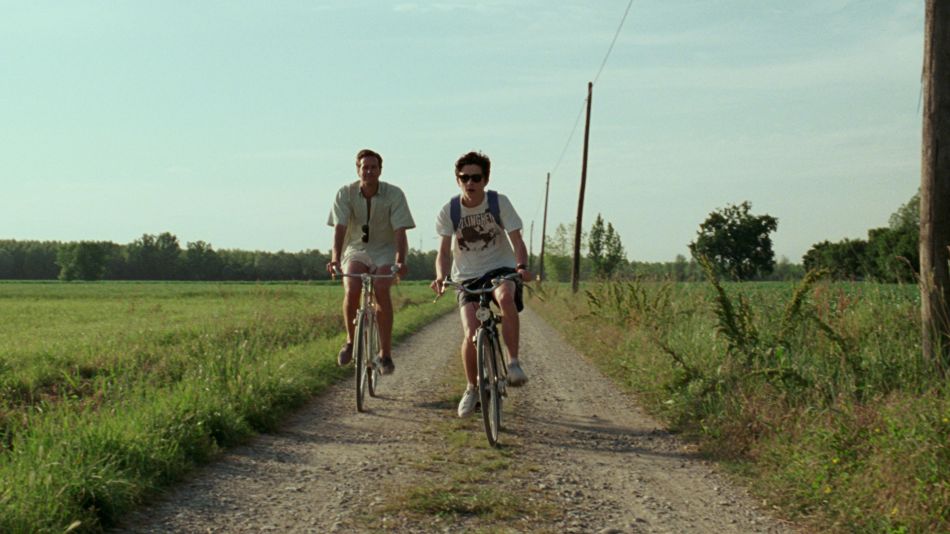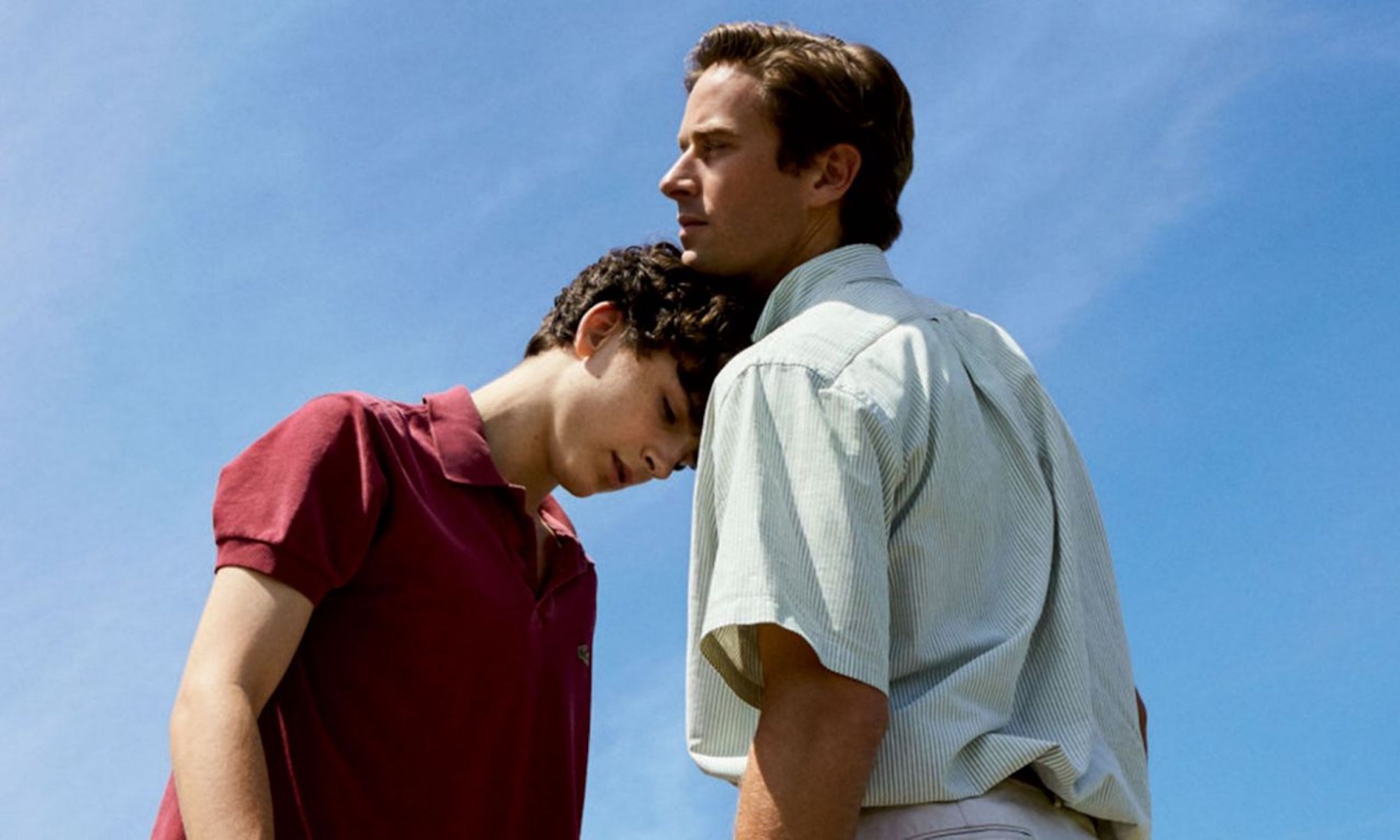Following the release of Call Me By Your Name in 2017, everyone involved with the film gave statement after statement regarding the possibility of a sequel. At one point, Director Luca Guadagnino claimed he wanted to make a decadent five-film series, where he’d document the characters as they age, and apparently, with the first sequel to be set “right after the fall of the Berlin Wall.” Timothée Chalamet compared the style of their storytelling conceit to Boyhood, adding that he doesn’t see “any world where [a sequel] doesn’t happen,” and Armie Hammer went on talk shows joking that he and Timmy were down “as long as they give [each of them] $12 million.”
But after the film picked up an Oscar, they all went on to new projects. Chalamet would play a French King with the haircut of a kid who’d coat check a skateboard at the club and Guadagnino would remake Dario Argento’s 1977 horror film Suspiria. There was a soft shock of nothing. That is, until the book’s author André Aciman tweeted: “I would actually love a sequel to Call Me By Your Name. In fact I am writing one.”
Hype for this sequel was instant, and intense — a twitter account usually dedicated to pop music updates revealed the book’s cover to over 3k retweets. This is a story, after all, that had sparked an international phenomenon.
For so many, Call Me By Your Name had felt like an antidote to decades of queer love stories that had been poisoned by tragedy, by AIDS, by violence, or even death. Instead, this bildungsroman of sorts was nothing more than the sun-soaked and suffocating headrush that first love always is — a universal experience due to all its specific, heart-crushing details. Aciman presented two people to the world who were clearly meant to be together, even if just for a few blissed-out weeks somewhere in Northern Italy.
Yet Find Me, the sequel that was released last week, doesn’t expand much at all on the impact of the story in the original. The new novel gives readers exactly what they will want to see. But while our ideal ending for Elio and Oliver could be lifted from any of those fantasy fanfictions, the way Aciman delivers the fantasy veers wildly away from all expectations.
The first, 118-page section of Find Me follows an old man falling in love with a girl half his age on a train ride to Rome. Now nicknamed Sami, this man is Elio’s Dad. He is newly divorced and the time frame is a decade following the summer of Call Me By Your Name. It’s on this train that he meets Miranda, who’s beautiful but he thinks she looks “glum.” She reminds him of Elio — “I could just see it in the two of them: the same embittered, impassive, injured hearts.”
Sami and Miranda fall into a Woody Allen-style romance, in which Miranda is the young, perfect dreamgirl who revitalizes the weary older man’s spirit. Sami will look at her, and narrate: “Men were like matches: they caught fire and were shaken off and dropped in the first ashtray that came her way.” They talk almost exclusively in clichés, and soon wish to be together always.

We fall back into Elio’s perspective in the novel’s second section when he’s 32, and Miranda and Sami now have a little boy named Oliver. (It’s not really answered why Elio’s Dad would name Elio’s new baby brother the same name of the man who took his son’s virginity a decade beforehand, but, like, all right). Elio’s a pianist in Paris, with nothing serious romantically in his life, and only lovers he thinks of as “occasionals.” That is, until he meets a man at a concert twice his age. Oliver soon rediscovers what all-consuming passion can feel like in his (funny and really lovely) section of the novel, in which he gets a little too drunk at his own party, and feels helpless lust for two of his guests.
Find Me slowly reintroduces us to Elio and Oliver as two mirrored hearts, as we see Oliver working as a professor in the US. The main loves of their separate lives are named Michel and Micol. They listen to the same music from across the world, and hear each other.
Believing in soulmates in the age of dating apps of course can be difficult — with seemingly limitless choice, has it ever been more daunting to know that you are absolutely in love with the right person, for forever? The contemporary doubt surrounding the existence of soulmates might help explain the popularity of this year’s Normal People, the brilliant Sally Rooney novel following two Irish kids who no matter how hard they break each other’s hearts, somehow find a way back into each other’s orbit. It also illuminates what while Find Me drips in cliché dramatics, it still resonates because we know that Elio and Oliver are just meant to be together.
The new pivotal refrain of this sequel is “look for me, find me,” because it’s already established that the two of them can fluidly call each other by their own name.

In this sequel, Elio and Oliver are still soulmates, sure, but just now we’re reading hundreds of pages of the missed opportunities and dull moments in between their inevitable reunion.
There’s been a recent flux of unexpected literary sequels that have become widely anticipated, like this year’s sequel to The Handmaid’s Tale that’s been published 34-years later. However, the justification for a sequel to Call Me By Your Name feels absent: do we really need a book painstakingly detailing the in-between years of a love affair we already so confidently know the end of?
I remember reading the first book when I had mono a few years ago. I was seventeen, the movie wasn’t out yet, and I had no idea how to even spell Timothée Chalamet. But stuck in my bedroom, I couldn’t read this beautiful book fast enough, my fever somehow skyrocketing more with each page, as each word of summertime obsession slipped into the next.
It’s unfortunate that all the breathless electricity and rush of first love in Call Me By Your Name has since been lowered to a barely-there buzz — that in Find Me, all we can do is coldly watch soulmates stumble through their lives in search of something they both know they’ve already had.

